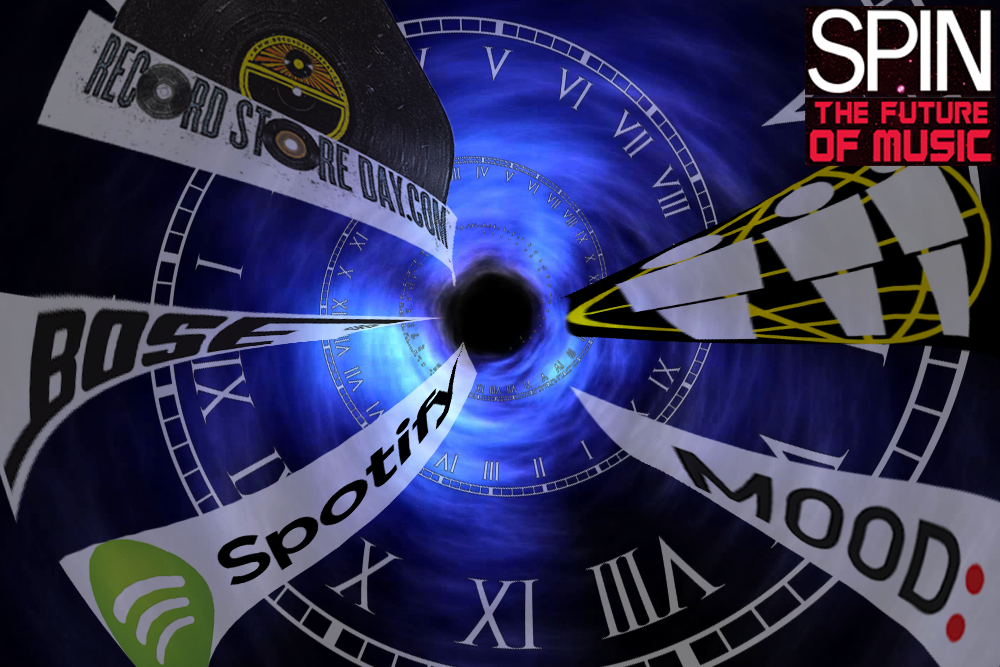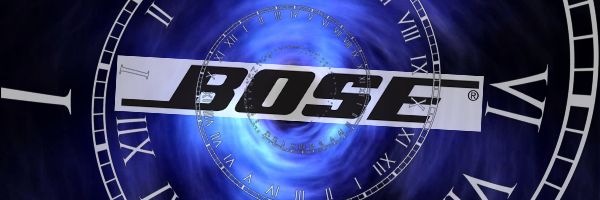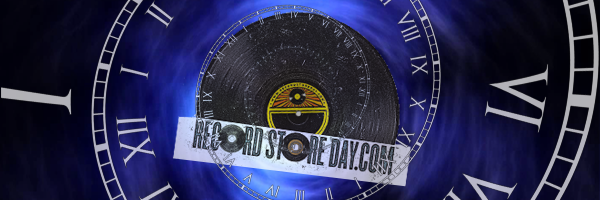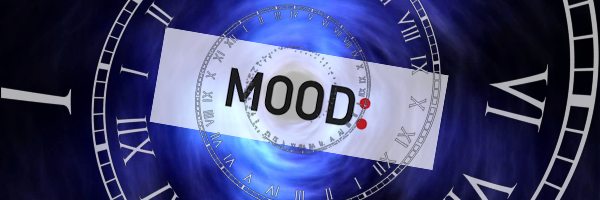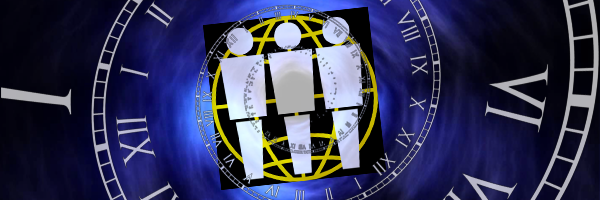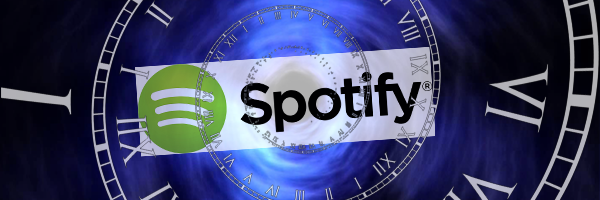The future of the music business has never been fuzzier. While Apple and YouTube enter the fray of the Great Music Streaming Wars and nightly news programs start to latch on to the (don’t-call-’em) comebacks of otherwise outdated physical media, everything music-related can look a little confusing from the outside. Where do long-standing industry giants and fast-rising newcomers stand in relation to one another within the ever-shifting landscape that the Internet has created?
To get answers, SPIN spoke to representatives from a few of the industry’s major players, including streaming giant Spotify, the audiophile experts at Bose, record-pressing dreamers from the Jack White-founded Third Man Records, the vinyl revivalists at Record Store day, and Mood Media, the background music parent company who acquired the infamous Muzak.
Read on for their explanations of how far they’ve come, where they’re going, and how they’re attempting to navigate the strange state of music.
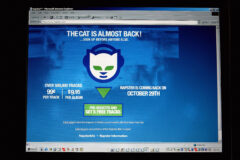
Also Read
WHY SO MANY MUSIC TECH DEALS FAIL
Santiago Carvajal, director of the SoundTouch ecosystem for Bose
How have things changed at Bose in the last 15 years, from 2000 to now?
I would say the biggest change that we’ve had is that we’ve become a much more software-central company. Back in 2000 we were primarily a hardware company; we were making speakers and systems, but we were basically assembling them. They did have embedded software in them, but basically just to make the systems work. Today we’re a much more software-centric company, where if you think about the people who are selling complex systems now, we’re connected to them in a way we’ve never been [before].
What is Bose capable of in 2015 that would have been hardest to predict in 2000? Is there anything that you can see coming in a decade or 15 years from now that sort of builds on that?
There’s many answers to that. One is that we’re now connected to every customer we’re selling products to. We can actually write an email to every customer that has purchased a SoundTouch and tell them that there’s a new feature. If our servers go down, their systems go down. I wouldn’t call it a feature but it is a capability that we didn’t even dream of back in 2000. We’ve only begun to scratch the surface here. We can make much quicker adjustments on features that are a real value to customers.
The other big one: There’s this idea that if you look at the 2000s and in the past before the 2000s, music was programmed by somebody. The producer would put 12 songs together in a certain album, or a radio station would be programmed by a DJ… It was very, “This is what I think people are going to like and I’m gonna put it out there,” and people chose from those limited options. Today, it’s a completely different world where the listeners are putting together the playlist, or the types of experiences that exist today.
So this idea about a connected world and connected communication between the service (Spotify, Pandora, etc.) and the user has huge benefits for the user, because I can tell the radio stations now what I like and what I don’t like. Also the music service benefits from it, because they become better as they learn about how their music is being consumed.
Is the 20th century model of a stereo system — where you insert one form of media into another and it plays on a device — is that concept totally dead?
I’m a firm believer that better benefits and better experiences will always win, no matter how they are delivered. I am a full believer that the direction toward connection between the listener, and ultimately the artist, is a huge benefit for both the listener, the artist, and everyone in between. So I believe we’re moving in that direction and that’s not gonna stop.
Is physical media completely dead? It isn’t, and it probably wont be for years, because there will always be customer who love the idea of feeling and touching media. That will continue to exist, but I don’t think it’s gonna drive music in the future. I think that maybe there will be opportunities to combine tangibility of things with new experiences, but they’re not literally putting a record in [a record player] or putting a cassette in a cassette player.
I believe that we’re in the very early stages of new models of listening to music. We’ve seen an OnDemand music-rental kind of framework that’s been emerging for the past ten years. They’re really now beginning to take hold. They’re still not business models that have been proven to work completely, but you can see how new experiences are becoming more and more prevalent. Ultimately I believe there is a need for making the right music at the right time easier for people.
Do you see the physical space that a speaker occupies almost shrinking into nothing, to the size of a penny?
We’re always working to make that a better and better experience. There are physics laws that we have to observe that we haven’t been able to get around. [Laughs.]
But I can tell you something, in 2000 I would have never imagined possible the sound that our smallest speaker is capable of producing. I would have never even dreamed about it, not even close. So if I fast forward 15 years, we may not be breaking physics laws, but we’re probably gonna do something that I’m gonna look back and say, “Holy cow, in 2015 I had no idea we’d be able to do this.” That includes for example the PhaseGuide technology that we have in our soundbars that can literally project sounds like a laser, like a flashlight, which is unbelievable.
Michael Kurtz, Co-Founder of Record Store Day
How have practices changed at Record Store Day since it was founded in 2007?
I mean, we didn’t dream of relaunching the vinyl business, but we ended up doing it. We brought music fans back into the stores. Giving them something tangible that they could fall in love with. At the time the only tangible vinyl sales were used vinyl and like high-end audiophile stuff. There really was not much.
How do you see your innovations in the vinyl world evolving over the next decade-and-a-half? What do you think will be possible in 2030 that would be almost unthinkable now?
For December, we’ve been working on a Record Store Day in France and the Netherlands and other countries. We’re going to be talking about different ideas — we’re going to have a cross-cultural event between Paris and New York City. I see us working with guys like Sam Calagione, with Dogfish Head Brewery; these guys that are actually community-oriented people, which is ironic because they’re not even in the music business, but they’re out there and people like them. So that’s probably going to be our future, working directly with artist management.
Do you worry at all about the vinyl business as more and more streaming services like Apple Music pop up?
Well, actually, 60 percent of the people who celebrate Record Store Day — well, maybe 70 percent — are under the age of 21. Mainly young people, mainly girls. I don’t worry about streaming in the sense of the context of record stores because it’s pretty much just a better version of radio — you can listen to what you want. And I’ve been a subscriber of Rhapsody [for about] ten, 12 years now. And I buy lots of records.My problem with it is, the artists that I’ve talked are just infuriated by the fact that music now is being consumed and they’re the only people not being paid. That’s a bummer because if [the companies] don’t figure out a way for the artist to get paid, then they’re not going to keep doing it. They’re going to get out, and how in love they are with it isn’t enough.
What’s one totally wild prediction you might have, either for Record Store Day or the general vinyl industry, about the way things might be 30 years from now?
On the dark side, people who just have done streaming and everything are going to wake up one day and realize, “Oh shoot, my fee for streaming is now a hundred dollars a month and I own none of my music.” That is going to happen, as soon as the major labels get the upper hand. They’re going to jack the rates up, just like cable companies do. As far as on the positive side, I don’t know! That’s a bad answer.
Ken Eissing, President of In-Store Media for Mood Media (Parent Company of Muzak)
How have practices changed at Mood over the last 15 years in terms of in-store media?
Well, in 2000 I would say we were, from a technology standpoint, much more satellite-based. We had primarily CDs and cassettes, and as the technology’s evolved over the last 15 years, it’s allowed us to move to much more Internet-based delivery technologies. What that has opened up is the ability to be much more interactive than we would ever be in the past when it was more linear, one-way type programming.
Can you explain what an interactive in-store experience means for Mood Media?
An interactive experience is being able to influence the music that’s played in the store, through either kiosks that are available in the store, or even on your smartphone. Another way to add an interactive experience is — we actually have a technology that we’ve deployed through our audio system in the U.S. and in Europe, we call it “Present,” which is an inaudible digital watermark that we can play through the music, that can be recognized and trigger specialized content on a smartphone. So we have a partnership with Shazam, where if you’re in one of our retailers that is enabled and you Shazam one of our songs, then you get very specialized, customized content that recognizes that you’re actually in the store, and it allows our clients special offers of messaging or other types of things that they want to do.
What do you see potentially 15 years down the line as being a possibility for Mood Media in terms of taking it to the next level?
What I see is the experience becoming much more immersive and interactive in-store, and having music be even more [a part of] the fabric of the in-store experience, but also having retailers and our clients allow that in-store experience to translate out-of-store as well. In other words, giving the consumers the ability to take the playlists with them, or interact with the music on their smartphones outside of the store, and then tying it back to [the brand’s] online strategy as well. I think 15 years from now it’ll be a very different experience than it is now because all of that will become standard.
Similarly, if they’re in-store and the retailer has a digital screen, what we call digital signage — which is a flat-screen TV playing content — you can interact with that content using our watermarking technology, and Shazam that content so that it’s on your phone. And similarly, being able to recognize that you’re in the store, that you now have it on your phone, and even taking that across platforms so that the next time you log on to the retailer’s website, we have that linkage as well — and we know you were interested in this content at this point when you’re in the store.
Ben Swank, “Consigliere” for Third Man Records
How have practices changed at Third Man since it was founded?
The label started mainly in name only in 2001, and then became really active with the brick-and-mortar offices/studio/record shop/venue location in 2008. In 2001, being buoyed by all these sloppy garage-rock bands getting national attention and touring the world, the possibilities felt kind of endless (we were young and dumb). In 2008, opening these offices released a torrent of inspiration and excitement that I think people really related too and engaged with, and now nearly seven years later I really do feel like new opportunities open up every day.
It’s important to us to approach things in an unconventional, but wholly artist-friendly way, and that’s been really helpful in spreading a good rep around the “biz.” I think anyone can do what they want, as long as they don’t listen to how everyone else is doing it… It’s very much the wild west right now, and most bands have more control then ever, though the financial resources and backing aren’t what they used to be… but as long as you’re making music for your own reasons and have reasonable expectations and understand that it’s a partnership between artist and label, I think you’re going to meet your goals. Being excited about what you do (both labels and bands) goes a hell of a long way.
How do you see your innovations in vinyl releases and book publishing evolving over the next decade-and-a-half?
I want to be the first record label/book publisher to donate free music and books to the U.S.A.’s inevitable moon prison.
Are you optimistic about Third Man’s place as a bastion of physical releases in a climate that increasingly favors the ephemeral nature of streaming services and the cloud?
I feel optimistic that certain people are always going to gravitate towards the more romantic, visually and audibly appealing product, be it LPs or books or anything really… Something tangible can be more enriching and have a more sentimental significance in your life, and we can learn from them more. The numbers seem to be growing and I genuinely sense a move away from the Internet in general.
I think people are ready to start living in the real world again. It’s always going to be different from the past, but that’s OK. It’s our job to remain interesting no matter what the zeitgeist is. We strive to be very active members of the community and host film screenings, poetry readings, charity events, live shows, etc. Those sorts of things are always going to be important and needed in any society no matter what the industry climate or populations taste in music is. It’s important to be more than just a manufacturer cranking out widgets or novelty vinyl ideas.
Is there a way to further the communication between artists and listeners, to make the relationship even closer and more immediate than it is now?
I touched on this a little bit, but our community is a very direct relationship with fans. The Vault is another form of this, it’s the community as an online forum. We speak with them daily and the direct-to-customer-only packages they receive are often shaped by feedback we see in that community. The storefront here in Nashville, and soon-to-be Detroit, is another form of this. People come into a place that is a like a public HQ for the things they dig, and they meet us and talk with us and we talk about music and books and movies or the weather or the neighborhood, or whatever.
What’s one totally wild prediction you might have — either for Third Man or general music consumption — about the way things might be 30 years from now?
We’re going to see less online/disposable music consumption. I really believe that. Everyone is waking up to seeing the Internet as a tool, not so much as a daily addiction/social intermediary/fake personality avatar. People want to have conversations again. So we’re going to see a return to meaningful long-form journalism, and real artistic projects that exist in multimedia forms centered on a physical product.
What exactly that means right now I don’t know, and it’s none of my business… The kids are smarter then I am and I really hope they reject us outright and start their own new world. I’m tired of us old people.
Shiva Rajaraman, VP Product, Spotify
How have practices changed at Spotify even since the time you’ve been around, since 2006?
A decade ago, Spotify largely pioneered access by putting the entire catalog in the cloud. And that was, in many ways, a licensing innovation more than anything. It was just complete access for one price. Now if we fast-forward to today, the primary difference is that we’re differentiating what we do on top of the catalog. So one way to look at it is that we’ve invested in sophisticated engineering and talent, and focused on getting a deeper understanding of users’ taste and now we’re starting to recommend and craft content against those tastes. The other thing we’ve done is to start investing in great tastemakers to curate the catalog, and create shows, if you will, like RapCaviar.
Is there a new frontier that’s the next step for Spotify?
Well, we can look at what’s evolving in the next ten years or so. We launched something on PlayStation, for example, which is that while you’re playing a game you can listen to Spotify in the background. I think one of the things that we’re really embracing now is the idea that music is ambient, and therefore can be a companion for many many experiences. And we think that’s really powerful, because by making music relevant throughout your life, it’s gonna give artists new opportunities to connect with fans but it’s also gonna effectively make music much more essential for many more people.
And we’ve seeded a lot of these partnerships. For example, with Uber, we’re in the car. You may not own a car in the future, but you can still pick your music. And then we’re looking at other partnerships, where, how does Spotify enrich all kinds of domains with music? If you think about what that might look like, it might be that 50 percent of our consumption in the future is not actually in our core app but is in partner apps. And that’s very exciting for us.
Is there a way that the future is going to make licensing easier for Spotify, or more lucrative for the artists? How do you see that evolving in the next ten to 15 years?
The fundamental thing is just growing the pie. The more we can make music essential for more people in more places and more contexts, the bigger the music industry gets. And usually, as you do that, there’s effectively more profit for everyone involved. Another way to look at it is, can we actually create, effectively, a new economy for musicians? And now, by having all these different avenues by which you can make an income, there’s all kinds of people who’ve got incredible talent but maybe they can’t be a pop star, but they could be the best at one of these things. So instead of gearing the economy to those who can make the charts, let’s make the economy one of making music for the world, and making it useful for the world, everywhere, all the time.
Is there something beyond the phone for Spotify? Is there a new way that listeners can access the app that will somehow be even more convenient than that?
So one thing I’m particularly excited about is building on the fact that we’re an audio platform, and thinking at just one layer of abstraction, which is how would an audio-only user interface look for Spotify? [There are] a lot of cool things we can do with audio. We can have voice controls, we can have audio messaging, and it’s exciting in a lot of different ways. I’d like to be able to walk into my living room — and maybe my connected lamp is a my speaker — and I say, “Play me some soul,” and then [it’d] dial up D’Angelo, right? It should be as easy as that.
Do you have any other bold predictions — for Spotify, for the music industry in general — for 30 years from now?
I’m a scuba diver and I’d love a world where I’m underwater and my [suit] is fully audio’d. And my diving soundtrack changes as I go deeper and darker. I’d love it if as I saw new things, Spotify would tell me in audio what’s the name of that flora or fauna. And when I see a reef shark, it plays a mellow EDM song, or a Bob Marley thing whenever I see a turtle. So generally I think this idea of music enriching your life is a key one.
In addition to that, I think one of the things I’m most excited about is, given you often have your hands, your eyes, etc. tied up when you’re using Spotify, what is the gestural language or the audio-only language we can have around Spotify that helps you control it in all kinds of contexts? There’s new types of sensors that’ll come on phones that can detect your fingers in front of it without you touching the screen. And obviously audio and voice recognition is getting powerful, but I like this idea of saying, “Why do I even have to pick up a phone anymore?”
And if you really fast-forward… I’m not saying we’re gonna have something implanted in our head that’s a speaker, but more the fact that maybe a speaker can actually disappear, and depending on which context, you might have it in something else that you’re wearing, and whatever you’re wearing then becomes the device is interesting for us. And we just need to figure out how to get there.

